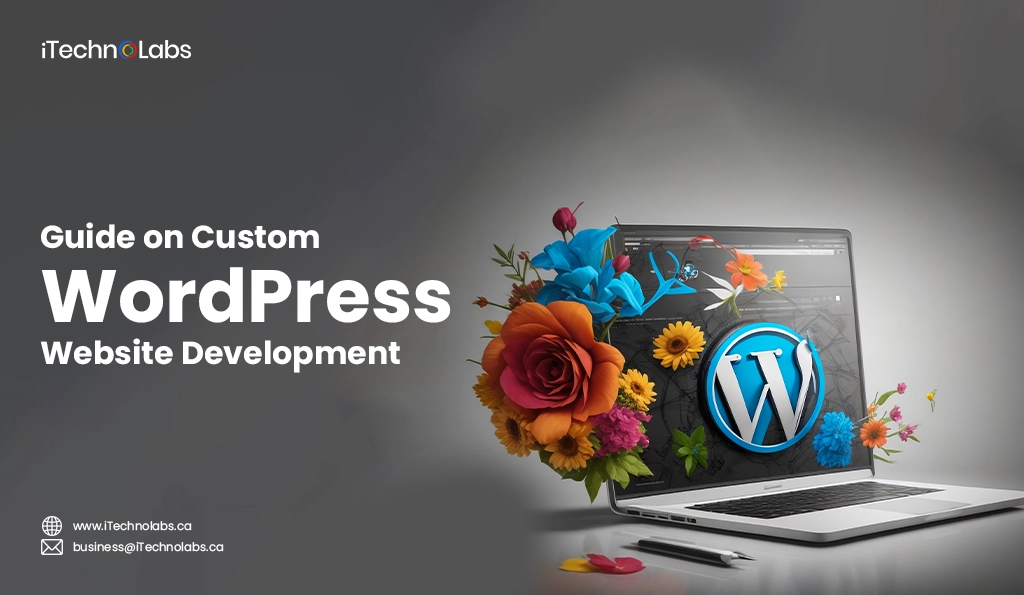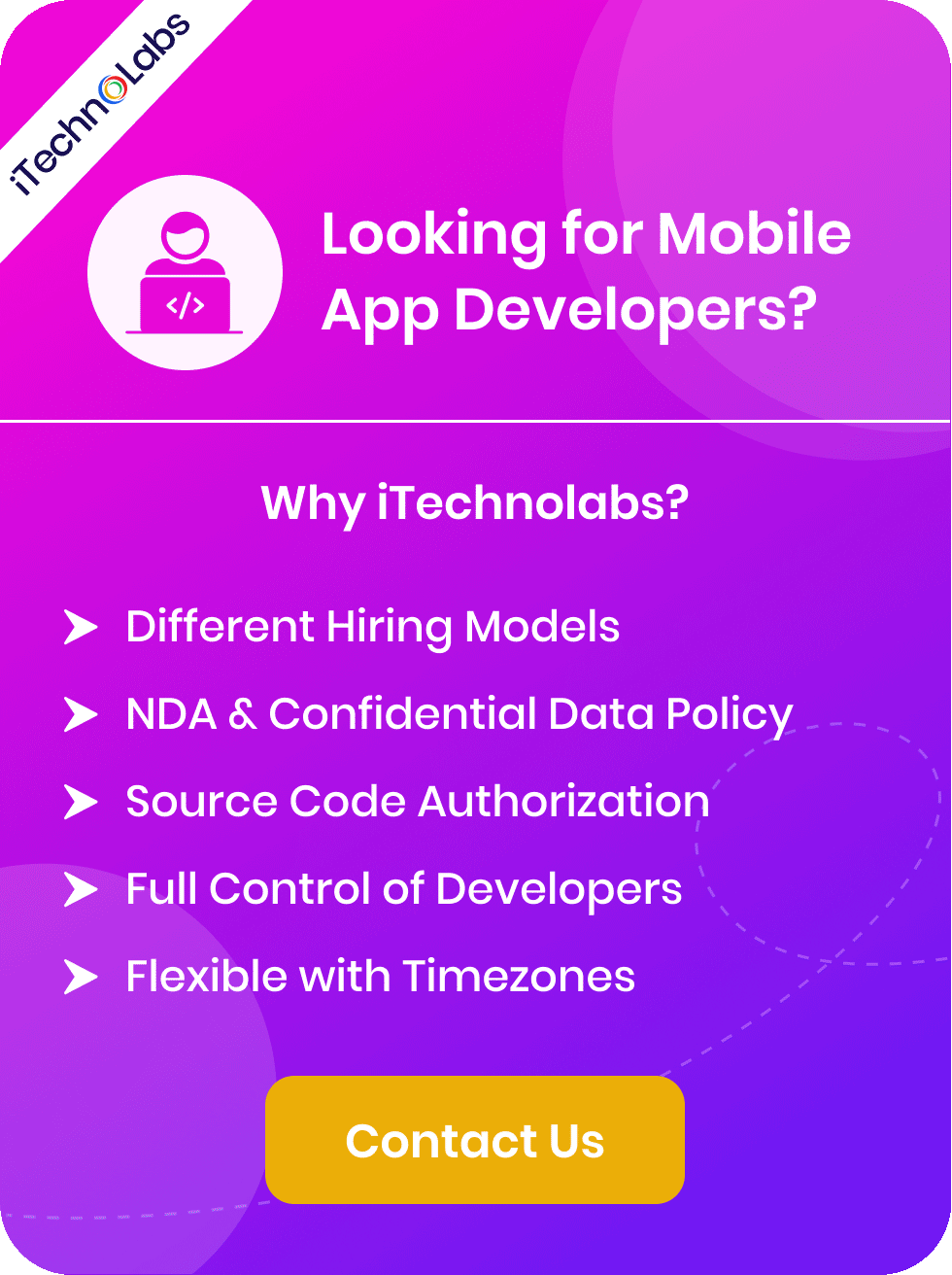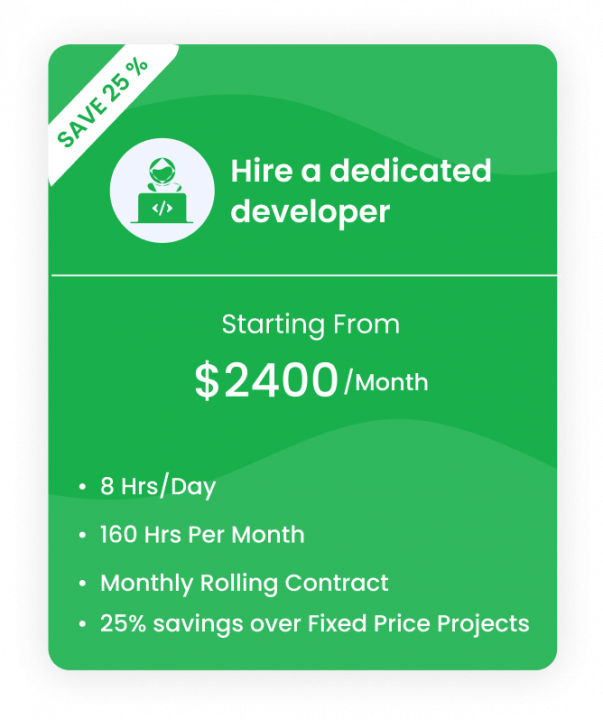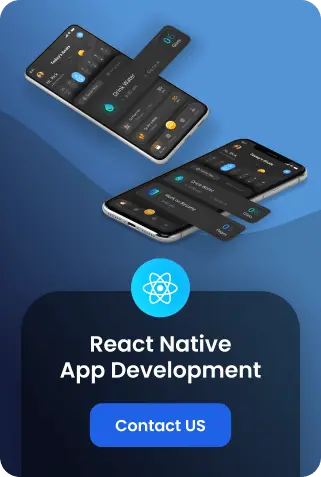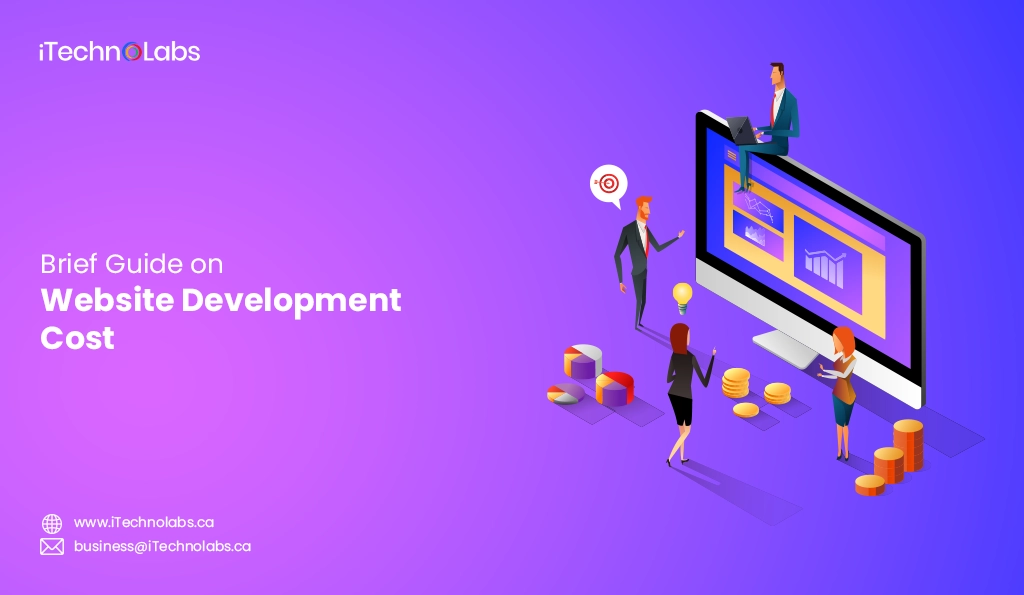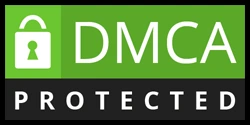In the ever-changing landscape of technology, website development emerges as a crucial and transformative component. Keeping pace with the continuous influx of emerging trends and innovations is essential for enterprises looking to maintain a strong online presence and effectively engage with their target audience. Amid the multitude of platforms available, WordPress stands out as a premier choice due to its user-friendly interface, extensive customization options, diverse plugin ecosystem, and robust community support. These characteristics position WordPress as the preferred solution for numerous businesses seeking to solidify their digital footprint, elevate user experience, enhance SEO performance, and establish a prominent brand presence in the fiercely competitive online environment. By leveraging WordPress, businesses can tap into a versatile and scalable platform that not only meets their immediate needs but also paves the way for future growth and success.
What is Custom WordPress Website Development?
Custom WordPress website development is a meticulous and strategic process that involves crafting a bespoke and unparalleled website utilizing the versatile WordPress platform. This intricate procedure goes beyond just creating a website; it focuses on fine-tuning each element to perfection. From design aesthetics to advanced features, seamless functionality, and engaging content, every aspect is carefully considered to align with the unique objectives and specifications of a business.
In stark contrast to generic off-the-shelf templates or themes, custom development offers businesses unprecedented control over their website’s visual appeal and operational capabilities. This level of customization empowers enterprises to create an online presence that not only stands out but also authentically reflects their brand identity and core values. The bespoke approach ensures that every detail is tailored to deliver an exclusive and impactful digital representation of the business.
Also Read: What’s New in WordPress Version 6.0: Features & Improvements Explained
How Does Custom Development Differ from Theme Customization?
While theme customization involves making visual or functional changes to an existing WordPress theme, custom development starts from scratch. It entails creating a unique website design and incorporating specialized functionalities that align with the business’s specific needs and goals.
| Factor | Custom Development | Theme Customization |
| Starting Point | Begins with a blank canvas, enabling complete originality and uniqueness. | Starts with a pre-existing template or theme |
| Design Flexibility | Offers limitless design possibilities tailored to specific brand requirements. | Limited by the constraints and layout of the chosen theme |
| Functionality | Can incorporate any desired feature or functionality tailored to business needs. | Restricted to the features and plugins compatible with the theme. |
| Time and Effort | Usually requires more time and resources due to its bespoke nature. | Quicker to deploy, as it involves adjusting existing elements |
| Cost | Generally, more expensive upfront due to custom design and development efforts. | More affordable short-term, relying on existing solutions |
| Brand Representation | Ensures a unique digital presence that fully embodies the brand’s identity. | May result in a website that resembles others in the market |
What’s the Difference Between a Custom Theme and a Website?
When it comes to designing and building a website for your business, there are several options available. Two common approaches are custom development and theme customization. While both methods can result in a functional and visually appealing website, they differ significantly in terms of their functionalities and potential impact on your brand.
A custom development approach involves starting from scratch with a blank canvas. This means that every aspect of the website, from its layout and design to its features and functionality, is created specifically for your brand’s unique needs and requirements. On the other hand, theme customization involves starting with a pre-existing template or theme and making adjustments to fit your brand’s needs.
What’s the Difference Between WordPress.org and WordPress.com?
When it comes to building a website using WordPress, there are two main options available – WordPress.org and WordPress.com. While they may sound similar, they actually differ significantly in terms of their features and functionalities.
WordPress.org is often referred to as the self-hosted version of WordPress. This means that you will need to find your own hosting provider and install the WordPress software on your own server. This gives you complete control over your website’s design and functionality, as well as the ability to add custom code and plugins.
On the other hand, WordPress.com is a hosted platform where you can create a website without having to worry about finding a hosting provider or installing any software. However, this also means that you have limited control over your website’s customization options and are limited to the features and functionality provided by WordPress.com.
4 Benefits of Custom WordPress Websites
1. Custom Sites are More Secure
One of the major benefits of opting for a custom WordPress website is the heightened security it provides. By having a custom site, you gain complete control over the code, allowing you to tailor various security measures to fortify your website against potential cyber threats. This encompasses the ability to regularly update and patch vulnerabilities, as well as enforce secure login protocols to enhance overall protection. Choosing a custom WordPress solution not only offers enhanced security but also empowers you to proactively safeguard your online presence.
Moreover, with a custom WordPress website, you can implement advanced security features such as two-factor authentication, IP blocking, and security plugins tailored to your specific needs. This personalized approach ensures that your website remains resilient against evolving cyber threats, giving you peace of mind and maintaining trust with your site visitors. The customization options available with a custom WordPress site enable you to create a secure online environment that aligns perfectly with your business requirements and brand identity.
2. Easier to Customize and Scale
Another benefit of using a custom WordPress website is the flexibility it offers in terms of customization and scalability. With a custom site, you have complete control over every aspect of your website’s design and functionality. This means that you can easily tailor the appearance, layout, and features to match your business goals and unique brand identity.
Additionally, when using pre-designed templates or themes, you may encounter limitations in terms of customization and scalability. With a custom WordPress website, you can avoid these constraints and have the opportunity to continually evolve and improve your online presence as your business grows and changes.
3. SEO-Friendly
WordPress is highly esteemed for its robust search engine optimization (SEO) capabilities. By leveraging a custom WordPress website, you can delve even deeper into these advantages. Custom websites provide increased flexibility in optimizing your site for search engines, enabling precise targeting of specific keywords to enhance your position on search engine results pages.
Moreover, the versatility of a custom WordPress site allows for the regular addition of fresh content, boosting your SEO endeavors. This aspect is particularly advantageous for businesses reliant on online visibility to capture customer interest. The ability to consistently update and enrich your website content not only enhances SEO but also cultivates a dynamic online presence that resonates with your audience.
4. Easier to Maintain
Maintenance is a crucial aspect of owning and operating a website. With a pre-designed template or theme, you may be limited in your ability to customize and fix any issues that arise. In contrast, with a custom WordPress website, you have complete control over the code and functionality, making it easier to troubleshoot and update as needed.
Additionally, with a custom site, you can avoid the risk of having a website that looks similar to others using the same template, ensuring your brand stands out in a crowded online space.
How to Develop a Custom WordPress Website
To develop a custom WordPress website, you will need to follow these steps:
- Plan and strategize: Start by defining the purpose of your website, target audience, and desired features. This will help you create a blueprint for your site and ensure it meets your specific needs.
- Choose a hosting provider: Select a reliable hosting provider that can support WordPress and provide ample storage and bandwidth for your site.
- Install WordPress: Once you have a hosting account, you can install WordPress on your server. Most hosting providers offer one-click installations for WordPress.
- Customize your theme: Choose a professional and responsive theme that aligns with your brand’s aesthetic and customize it to fit your needs using the built-in customization options or by modifying the code.
- Install necessary plugins: Plugins are essential for adding functionality to your site. Choose and install plugins that will enhance your site’s performance, security, and user experience.
- Create content: Start creating high-quality content for your website, including pages such as home, about, services/products, testimonials, and contact. You can also start a blog to regularly publish relevant content for your audience.
- Test and launch: Before launching your site, thoroughly test it for compatibility, responsiveness, and overall functionality. It’s essential to make sure your site is error-free before making it live.
- Maintain and update: Regularly maintain and update your website to ensure optimal performance, security, and search engine visibility. This includes updating WordPress core files, theme, plugins, and regularly publishing fresh content.
Step 1: Define Your Business Goals
The first crucial step in developing a successful website entails meticulously outlining your business objectives. Begin by reflecting on the specific outcomes you wish to achieve through your website. Are you aiming to generate leads, showcase products/services effectively, or simply create a strong online presence for your brand? Once you have precisely defined your goals, you can formulate a comprehensive strategy that not only aligns with these objectives but also drives you closer to accomplishing them successfully through your website. Remember, a well-thought-out plan is key to unlocking the full potential of your online presence and maximizing your business objectives.
Scenario 1. To Scale your Business
If your main goal is to scale your business, then your website should reflect this by having a professional and polished design. Your content should be tailored towards showcasing your products or services as the best in the market. Utilize visually appealing elements such as high-quality images and videos to captivate potential customers’ attention and highlight the benefits of choosing your brand.
Furthermore, consider incorporating e-commerce functionality to allow for easy and secure transactions, as well as customer reviews and testimonials to build trust and credibility. Regularly updating your website with new product launches, promotions, and industry insights can also help attract more customers and keep them engaged.
Scenario 2. For Test Market Response to your Solution
If your primary objective is to test market response to a new product or service, your website should be designed with this in mind. Focus on creating a simple and easy-to-navigate website that highlights the key features and benefits of your solution. This will allow potential customers to quickly understand what you offer and encourage them to try it out.
In addition, consider including a call-to-action on your website to encourage visitors to sign up for a free trial or demo of your product. This will not only provide valuable feedback but also help generate leads and potential customers.
Step 2: Design the UI/UX for Your Website
Once you have clearly defined your business objectives, the next step is to delve into the intricate process of crafting the user interface and user experience (UI/UX design) for your website. The UI encompasses the visual components of your site, including the layout, color palette, typography, and imagery, all meticulously designed to create a visually appealing and cohesive digital environment. On the other hand, UX delves into the user journey, focusing on how visitors navigate your website, interact with its features, and ultimately, the overall satisfaction they derive from the experience. Achieving a harmonious balance between UI and UX is crucial to ensuring a seamless and engaging online presence that resonates with your audience.
Step 3: Develop and Test Your Website
Once you have finalized the design for your website, it’s time to start the exciting process of developing and testing it. This involves creating a functional prototype of your website using essential coding languages such as HTML for structuring, CSS for styling, and JavaScript for interactivity.
During the development stage, it is crucial to continuously test your website to ensure optimal functionality and user-friendliness. This can be achieved through a variety of methods such as user testing to gather direct feedback, A/B testing to compare different design variations, and usability testing to assess user experience. Additionally, conducting performance testing to evaluate loading times and responsiveness across devices can enhance the overall user experience.
By thoroughly testing your website, you can proactively identify and address any issues or bugs before the public launch, ensuring a smooth and successful user experience that resonates positively with your target audience.
Step 4: Launch, Maintain, and Update Your Website
Congratulations, your website is now ready to go live! However, the journey does not end here. Launching a website is just the beginning of an ongoing process of maintenance and updates.
To maintain a high-performing website, it is essential to regularly monitor its performance, security, and functionality. This can be done through analytics tools that provide valuable insights on user behavior and website traffic, allowing you to make data-driven decisions for improvement.
Moreover, keeping your website content relevant and up-to-date is crucial in retaining your audience’s interest. This can be achieved through consistent updates and additions of new content, as well as periodic design updates to keep your website visually appealing and modern.
The Team You Need to Create a Custom WordPress Site
Creating a custom WordPress site can be a daunting task, but with the right team, it can be an efficient and successful process. The following are essential roles that you may need to consider when building your team:
- Project Manager – responsible for overseeing the entire project and ensuring timely completion.
- Web Designer – responsible for creating the visual design of your website.
- Web Developer – responsible for coding and building the website.
- Content Writer – responsible for creating engaging and relevant content for your website.
- SEO Specialist – responsible for optimizing your website for search engines to improve its visibility and ranking.
- Quality Assurance Tester – responsible for identifying any issues or bugs in the website before launch.
- User Experience (UX) Designer – responsible for creating a user-friendly and intuitive design for your website.
- Graphic Designer – responsible for creating visual elements such as logos, images, and graphics for your website.
- Social Media Manager – responsible for managing and promoting your website on various social media platforms.
- Customer Support Representative – responsible for addressing any technical or customer inquiries related to the website.
Read More: Laravel vs WordPress: Which one is ideal for developing a website
Custom WordPress Website Development Challenges
Creating a custom WordPress site also comes with its own set of challenges that the team may face. Some common challenges include:
- Meeting Client Expectations – ensuring that the final product meets the client’s vision and requirements.
- Integrating Third-Party Plugins – finding and selecting reliable third-party plugins to add desired features to the website.
- Ensuring Cross-Browser Compatibility – making sure the website works well on different browsers and devices.
- Managing Website Security – implementing necessary security measures to protect the website from potential threats.
- Dealing with Custom Code Conflicts – resolving any conflicts that may arise when integrating custom code into the WordPress site.
- Handling Data Migration – transferring existing content and data from an old website to the new custom WordPress site.
- Maintaining Website Performance – regularly monitoring and optimizing the website’s speed and performance to ensure a smooth user experience.
- Collaboration and Communication – coordinating with different team members and ensuring effective communication throughout the development process.
- Meeting Deadlines – managing time effectively to deliver the final product within the agreed-upon timeline.
- Post-Launch Support – providing ongoing support and maintenance services to ensure the website continues to function properly and meets the client’s evolving needs.
Challenge 1. Data Issues
One of the biggest challenges that developers may face when working on a custom WordPress website is dealing with data issues. This can include transferring data from an old website, merging data from multiple sources, or handling large amounts of data.
To overcome this challenge, it is important to have a thorough understanding of the website’s data structure and to plan and execute a well-organized data migration process. This may involve creating custom scripts or using specialized plugins to transfer and organize the data efficiently.
Regular backups should also be taken throughout the development process to avoid any potential data loss. In case of any data conflicts or issues, having a backup will allow for easy recovery and minimize downtime.
Challenge 2: Over-Reliance on Plugins
WordPress, a widely used content management system, offers users access to an extensive array of plugins designed to enhance website functionalities. These plugins, although valuable, need to be utilized thoughtfully to mitigate potential security vulnerabilities and performance bottlenecks.
To address this critical aspect, developers are strongly advised to carry out comprehensive evaluations when choosing plugins for their websites. Striking a balance between plugin integration and bespoke code solutions can significantly contribute to optimizing website performance and fortifying security protocols. By meticulously assessing the relevance of each plugin and exploring customized coding alternatives where appropriate, developers can uphold a robust and streamlined website ecosystem. This strategic approach not only ensures a secure online environment but also paves the way for enhanced user experiences and operational efficiency.
Challenge 3: Slow Load Times
With the rise of mobile browsing, website speed has become an essential factor in user experience and search engine rankings. Slow load times can result in higher bounce rates, decreased conversions, and a negative impact on SEO.
To combat this challenge, developers should optimize their code, compress images, and utilize caching techniques to reduce server requests. It is also crucial to regularly monitor website speed and make necessary adjustments as needed. Additionally, selecting a reliable hosting provider with adequate server resources can significantly improve website load times.
Moreover, ongoing maintenance and updates are critical for ensuring efficient website performance. By regularly updating plugins, themes, and core files, developers can eliminate potential security vulnerabilities and ensure compatibility with new web technologies. Furthermore, optimizing databases and removing unused or outdated elements also play a significant role in improving website speed.
How Much Does It Cost to Develop a Custom WordPress Website?
The cost of developing a custom WordPress website can vary widely depending on the complexity of the design, the functionality required, and the expertise of the developers involved. For a basic website featuring a unique design and essential functionality, prices can start from as low as $1,000 to $5,000. However, for more complex websites that require custom plugins, advanced security features, or e-commerce capabilities, costs can escalate to between $10,000 and $30,000 or more. Additionally, ongoing website maintenance, content updates, and SEO optimization services may incur monthly fees ranging from $100 to $500, depending on the level of service required. It’s also important to factor in the costs of web hosting, domain registration, and premium plugins or themes, which can add several hundred dollars to the overall budget.
Suggested: How Much Does it Cost to Create An App
How to Find Reliable WordPress Developers
When looking to hire a WordPress developer, it’s essential to do thorough research and vet potential candidates carefully. Some ways to find reliable WordPress developers include:
- Word of mouth recommendations from other business owners or colleagues who have had positive experiences with a particular developer.
- Freelance job platforms such as Upwork, Fiverr, or Toptal, where you can browse through profiles, portfolios, and reviews from previous clients.
- WordPress-specific job boards such as WP Hired or Codeable, where developers have been vetted and tested before being listed on the site.
- Attending local WordPress meetups or conferences to network with developers in your area.
What’s Next?
Once you have found potential candidates, it’s important to thoroughly vet them before making a decision. This can include reviewing their portfolios and previous work, conducting interviews, and discussing your project’s specific needs and requirements.
After hiring a WordPress developer, make sure to establish clear communication channels and define the scope of work in detail. It’s also crucial to discuss payment terms and timelines to ensure a smooth working relationship.
Finally, be sure to regularly communicate and provide feedback throughout the development process. This will help ensure that your project stays on track and meets your expectations. With the right research and thorough vetting, you can find a reliable WordPress developer who can bring your website vision to life. So don’t hesitate to explore various options and take the time to find the perfect fit for your project. Good luck! Overall, hiring a WordPress developer can greatly benefit your business by providing expertise and efficiency in building and maintaining your website. By following these tips, you can find a reliable and skilled developer who will help elevate your online presence and drive success for your business.
How can iTechnolabs help you to build a Custom WordPress Website?
iTechnolabs is a full-service digital agency that specializes in WordPress development. Our team of experienced developers can help you build a custom website tailored to your specific needs and requirements. We offer a range of services including theme customization, plugin development, and overall website design and development.
We understand the importance of having a strong online presence and our experts can work with you to create a website that not only looks great but also functions smoothly and effectively. Whether you need an e-commerce site, a blog, or a business website, we have the skills and knowledge to bring your vision to life.
- Expert Development Team: iTechnolabs employs a team of seasoned WordPress developers who are well-versed in creating custom websites, ensuring that your site is built to the highest standards.
- Tailored Solutions: We don’t believe in one-size-fits-all. Our approach is to understand your specific requirements and tailor the website to meet those needs, whether it’s for e-commerce, a blog, or a business portal.
- Theme Customization: Our services include bespoke theme design and customization, allowing your website to stand out with a unique look and feel that aligns with your brand identity.
- Plugin Development: We develop and integrate custom plugins to add essential functionalities to your website, enhancing its performance and user experience.
- Ongoing Support and Maintenance: After your site goes live, we offer continued support and maintenance to ensure smooth operation and to implement any necessary updates or changes.
- SEO and Performance Optimization: Understanding the importance of search engine ranking, our team ensures your site is optimized for SEO, speed, and responsiveness, providing an excellent user experience across all devices.
Are you planning to build a custom WordPress website?
Choosing iTechnolabs for your custom WordPress website development brings several significant benefits. Our focus on bespoke solutions means that you get a website finely tuned to your business needs and branding, making it a powerful tool in your online strategy. The expertise of our development team guarantees a high-quality build, not only in terms of aesthetics but also in functionality and security, ensuring that your website performs well on all fronts. Our comprehensive approach, covering everything from theme customization to SEO optimization, ensures that your site not only looks great but also ranks high on search engines, opening up more opportunities for traffic and conversion. Additionally, our commitment to ongoing support and maintenance means that your investment is protected and your website continues to evolve in line with web standards and your growing business needs. With iTechnolabs, you’re not just getting a website; you’re investing in a dynamic online presence designed for success.
- Customization to Match Your Unique Brand: iTechnolabs prioritizes your brand’s uniqueness, offering tailored theme and design options that align perfectly with your business identity.
- Enhanced Security Measures: With us, you can trust that your website is fortified with the latest security protocols, minimizing risks and safeguarding your online presence.
- Expertise in Advanced WordPress Features: Our team’s proficiency in WordPress’s advanced features means that your website will benefit from the latest technology and innovative functionalities.
- SEO and Performance Optimized: We ensure your website is structured and optimized for the best search engine rankings, leading to increased visibility and traffic.
- Responsive Design for All Devices: iTechnolabs guarantees a seamless user experience across all device types, ensuring your website looks and works great on desktops, tablets, and smartphones.
- Dedicated Ongoing Support and Maintenance: Our commitment to your success doesn’t end at launch. We provide continuous support and maintenance to address any issues and keep your site updated.
- Cost-Effective Solutions: Despite offering premium services, iTechnolabs maintains competitive pricing, ensuring you get the best value for your investment without compromising on quality.
Important: Top 12 Tips to Hire WordPress Developer For Startup
Conclusion:
In today’s digital age, having a professional and functional website is crucial for any business. With iTechnolabs, you can rest assured that your website will be designed and developed to meet your specific needs and goals. Our team of experts will work closely with you to ensure that your online presence reflects the uniqueness of your brand while also providing enhanced security measures and utilizing advanced WordPress features. We also prioritize search engine optimization and performance, as well as providing a responsive design for all devices to ensure that your website is user-friendly and accessible to all potential customers. And our dedication doesn’t end at the launch of your website – we offer ongoing support and maintenance services to keep your site running smoothly.
